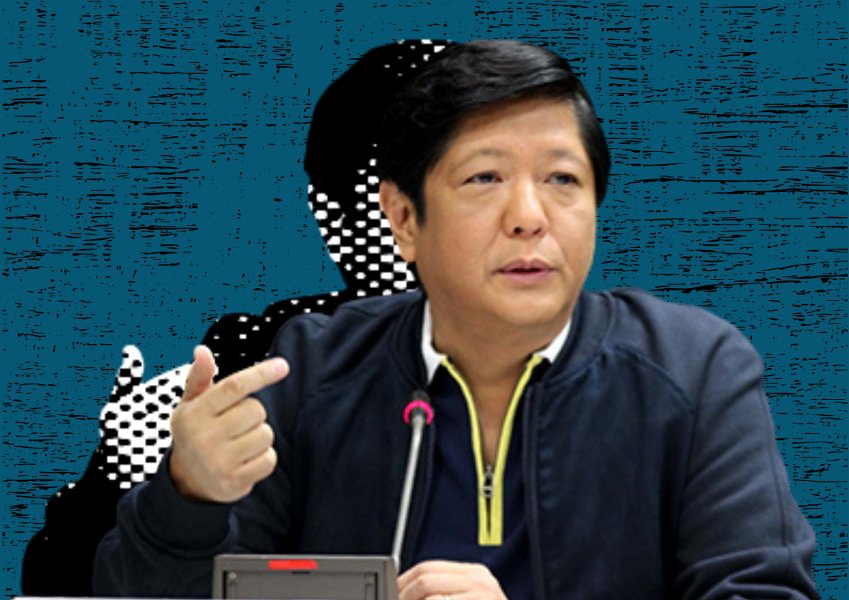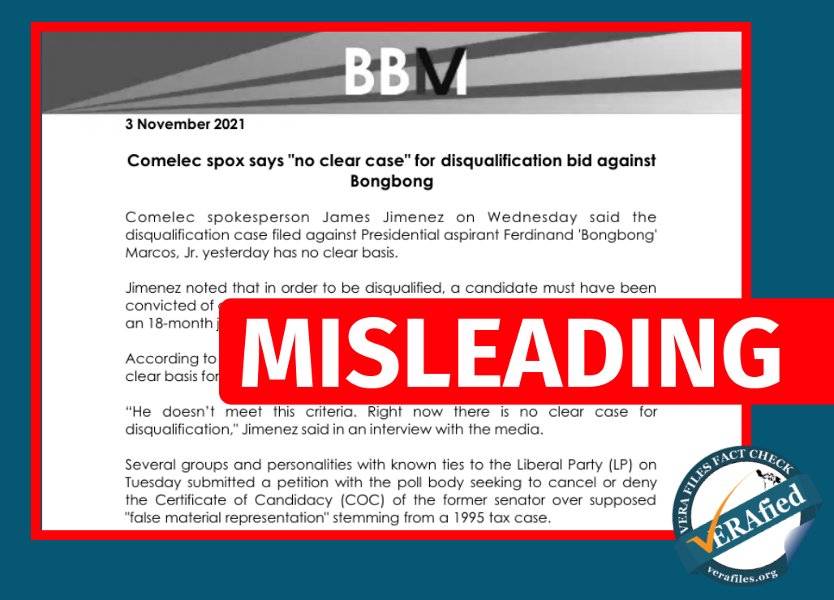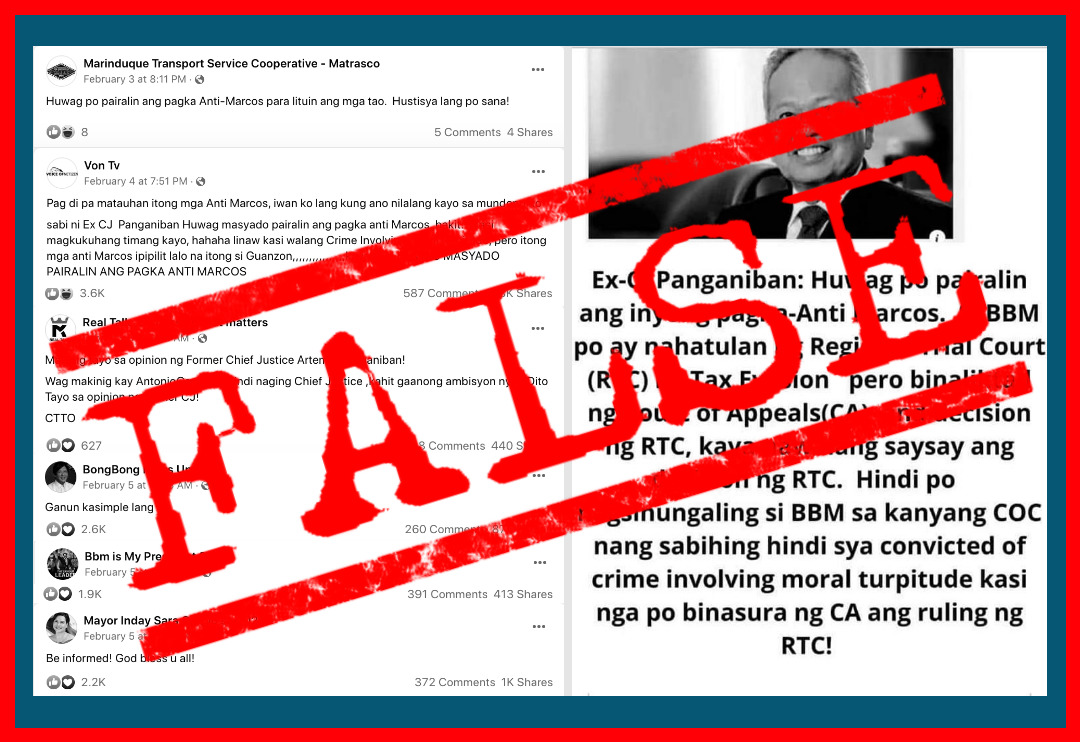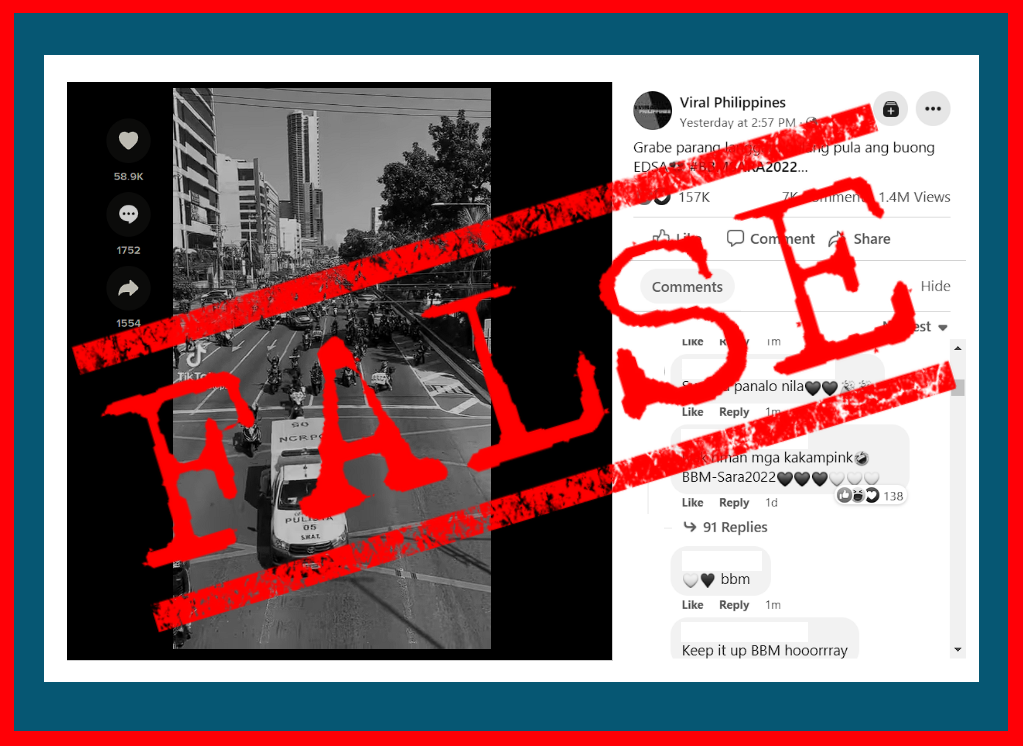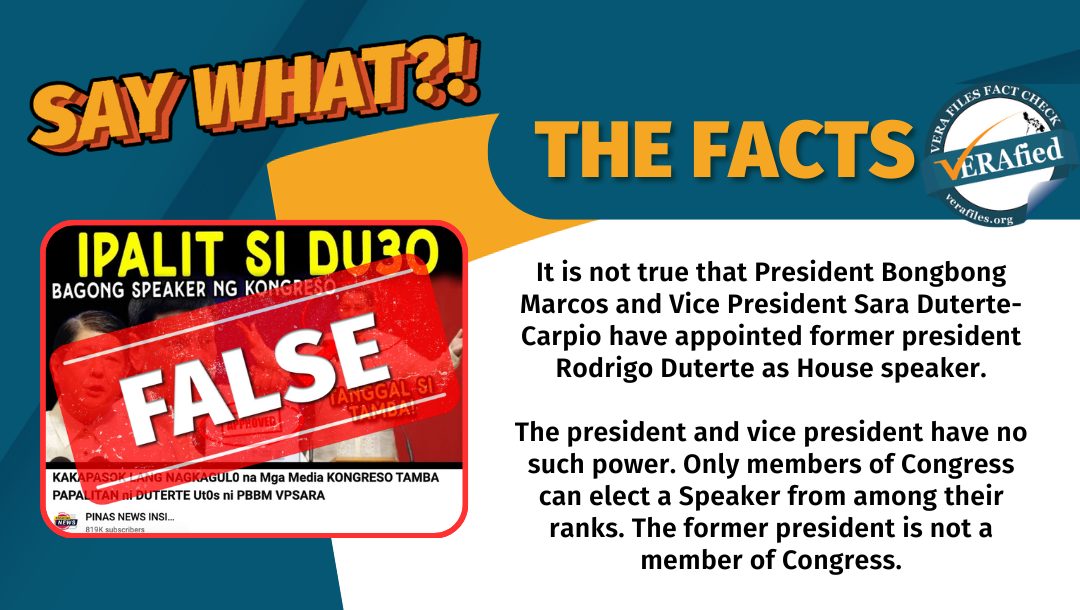Having served a term each for various elective positions does not absolve presidential aspirant and former senator Ferdinand “Bongbong” Marcos from the penalty of perpetual disqualification from running for public office with the finality of his 1997 tax evasion conviction, according to retired Supreme Court (SC) senior associate justice Antonio Carpio. The former magistrate made the declaration in a 1Sambayan online forum on Jan. 6.
“Whether you ran and you were elected before, you served, that does not erase the fact that you are disqualified, and you will still be disqualified,” Carpio, who also serves as the lead convenor of the 1Sambayan coalition, said.
Carpio cited as legal precedent a 2012 Supreme Court (SC) ruling which ordered the Commission on Elections (Comelec) to cancel the Certificate of Candidacy (CoC) of former Dapitan City Mayor Dominador G. Jalosjos, Jr. in the 2010 elections for material misrepresentation.
Jalosjos was gunning for a third term as local chief executive when an opponent challenged his candidacy, citing his unserved prison sentence. Convicted of robbery, he was supposed to serve from one year, eight months, and 20 days to four years, two months, and one day. Failure to serve out jail sentences of this length was one ground for disqualification under the Local Government Code and the Omnibus Election Code.
In 2012, the High Court affirmed Comelec’s decision to cancel Jalosjos’ CoC in 2010 for false material representation, the same grounds used by petitioners calling for the cancellation of Marcos’ CoC.
In 1995, Branch 105 of the Quezon City Regional Trial Court (QC RTC) found the son of the late dictator Ferdinand Marcos guilty for failing to file income tax returns from 1982 to 1985, a violation under Sec. 45 of the 1977 National Internal Revenue Code (NIRC).
The Court of Appeals affirmed this decision in 1997, which declared Marcos “guilty beyond reasonable doubt” and ordered him to pay his deficiency income taxes, its interest, and a fine of P36,000 plus surcharges.
On Dec. 22, the camp of the former senator presented a certification from the Bureau of Internal Revenue (BIR) supposedly proving that Marcos already paid the due fines and penalties of his tax case conviction.
But Carpio said only the deficiency income tax is payable to the BIR. The fine imposed by the CA decision should be paid to the trial court that ruled on Marcos’ case.
Additionally, there have been certifications from the office of the court clerk of the entire QC RTC and another specifically from Branch 105 saying they have “no record on file of [the] compliance of payment or satisfaction” of the 1997 CA decision.
Carpio earlier said in an October 2021 column that Marcos’ “repeated failure to file income tax returns for several years can evince an intent to evade such payment, amounting to moral turpitude.” A sentence by final judgment for a crime involving moral turpitude imposes on a person a penalty of disqualification from holding public office under Section 12 of the Omnibus Election Code.
The penalties are extinguished only five years following the serving of his sentence. In Marcos’ case, he could only run for public office five years after the full payment of the fines and penalties imposed by the CA ruling. Carpio argues Marcos has not yet fulfilled this condition.
Aside from the Omnibus Election Code, Carpio said Marcos’ conviction disqualifies him from pursuing public office under Section 253 of the amended NIRC. It states the perpetual disqualification of a public officer convicted of any crime under the tax code from holding any public office, as well as from voting and participating in any election.
Applying this, Marcos was already perpetually disqualified from holding any public office since Aug. 8, 2001, or when the CA ruling on his tax case became final after the SC granted Marcos’ withdrawal of his intent to appeal the CA decision. Yet, following the conviction, he was still able to serve as governor of Ilocos Norte, as representative of its 2nd District, and as senator of the country. He even ran for the second top post of the government in 2016.
Could an absolute pardon from President Rodrigo Duterte clear Marcos of his crimes? Carpio said this could “wipe out all the penalties” imposed on the former senator, but this does not mean he could finally run for public office in the May 2022 polls.
In the case of Jalosjos, the SC ruled that the mayor’s certificate of candidacy was void ab initio or void from the start “since he was not eligible to run for any public office at the time of filing his [CoC]” owing to his criminal conviction.
If applied to Marcos’ case, this means the presidential aspirant “has to file a new CoC that is valid” for him to be able to run for a public post, according to Carpio. But the deadline for CoC filing is long over.
“That’s the big problem there unless they reopen [the filing of the CoC],” Carpio noted.
When the Comelec hears the petitions challenging Marcos’ candidacy, 1Sambayan hopes the poll body will be accountable enough to do right by the law. “Let us trust that the Comelec, once they already have knowledge that such incident or conviction is existing against Ferdinand Marcos Jr., will do the right thing and implement the law,” said lawyer and 1Sambayan convenor Howard Calleja.
Calleja added that “whoever is not happy” with the Comelec’s decision “can always go up to the Supreme Court to question it further.”
Editor’s note: This article was updated to correct the date for the upcoming national elections in May this year.
